Top Tips: CV Writing
Your CV outlines your work experience and maps your career path to date. It is the tool that will get you an interview for the job you want. Whether you’re writing your first CV or polishing your old CV up for a career move, staring at a blank page can be daunting. The good news is, there’s a formula you can follow. Make sure you add the following sections to your page and work from there. Before you know it, you are no longer staring at a blank page, but a document that will get you noticed by a recruiter or hiring manager.
Personal Details
Your name, mobile number and email should all be listed at the top of your CV. We want to be able to contact you if a career opportunity arises! You may consider also listing a hyperlink to your LinkedIn profile.
Profile
The profile should make the employer want to meet you. It should be short enough to read quickly and concise enough to capture your skills and experience in a short paragraph.
Chronological Order
Most people list their most recent employment first, and the recruiter will probably appreciate you following this standard.
Key Information
Make sure your CV is easily readable. Three key pieces of information are titles, company names and dates of employment for each of your prior jobs. Align all 3 so it is easy to follow and read. Keep in mind that most hiring managers will only take a minute to scan your CV. Make sure they can easily find your key information. Then fill in your major responsibilities for each position using bullet points.
References
There is no need to list referee contact details on your CV. In fact, many referees would prefer their contact information isn’t given out too freely! Generally, we would recommend having your referee’s details to hand in case your application proceeds and to contact your referee to let them know your recruiter will be calling.
Technical Skills
An understanding of Microsoft Office is almost compulsory for all roles and you should indicate your expertise level and if you are an advanced user, intermediate, a beginner or somewhere in between. It is generally important to have skills in Outlook, Word and Excel but roles do vary. In addition to MS Office, certain roles may require knowledge of specific software such as a CRM Database or CAD software.
Education
If you’re entering the job market then there is justification for listing your educational accomplishments at the beginning of the CV. If you’ve been working for 12 months or longer, then a company may be more interested in your work history than your educational path. However, certificates, diplomas and degrees should definitely be listed.
Additional Training and Qualifications
Readers are interested in your training but list it in such a way that it is easy to read. The training should be relevant to the role for which you are applying. You may also have professional qualifications or licenses and it is important to list these clearly on the CV. They are generally best positioned with or next to your educational details.
Volunteering, Hobbies and Interests
Some people choose to close their CVs with voluntary experience or examples of their hobbies and interests. While it’s not as popular to list these sections nowadays, if your volunteer experience or hobby relate to the job you want, by all means include it!
Hopefully this short guide has been helpful and you’re on your way to writing the perfect CV for your dream job. When your CV is read and you want to take the next step in your career, contact your local RecruitmentPlus office or apply online for one of our current vacancies.



